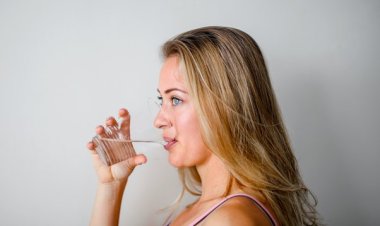Balanced Diet - Definition, Importance, Benefits & Diet Chart
A balanced diet contains adequate amounts of all nutrients necessary for the body to develop, remain healthy, and avoid disease.

Balanced Diet Definition
A balanced diet contains adequate amounts of all nutrients necessary for the body to develop, remain healthy, and avoid disease. In addition, a healthy, balanced diet provides the required energy, prevents vitamin, mineral, and other nutrient deficiencies, and boosts immunity.

What are The Benefits of Eating a Balanced Diet?
A well-balanced supper provides the body with all the nutrients it requires for normal growth and repair.
Benefits of Healthy Eating for Adults
A healthy diet helps enhance immunity, reduces the risk of developing Type 2 Diabetes, cardiovascular disease, and certain malignancies, maintains a healthy weight, and promotes rapid recovery from illness and injury.
Benefits of Healthy Eating for Children
A healthy diet helps strengthen bones, promotes cognitive development, strengthens the immune system, and regulates growth functions.

7 Essential Components of A Balanced Diet
A well-balanced diet consists of proteins, carbohydrates, fats or lipids, micronutrients such as vitamins and minerals, and water.
- Carbohydrates - Carbohydrates provide you with energy, which should constitute 50- 60% of your diet. Though it forms a significant diet component, you should not treat all carbs equally.
Sources of healthy carbs are-
- Whole grains like Oats, Quinoa
- Whole wheat, Dahlia
- Legumes
- Millets like ragi, bajra, barley
- Vegetables
-
Protein - Protein helps you build muscles and develops skin and hair. It should constitute 10-12% of your diet.
Sources of protein are-
- Legumes and beans, soyabean
- Poultry-Chicken, Turkey
- Seafood- Fish, Crab, Prawn, Lobster
- Eggs
- Lean meat- Lamb, Beef, Pork
- Nuts and Seeds
- Greek yoghurt
-
Fat - It is a misconception that fats are bad for your health. It would be best if you chose healthy fats as fats help you maintain your body temperature and help absorb fat-soluble vitamins ADE&K.
Sources of healthy fat are -
- Avocados
- Nuts
- Seeds
- Extra virgin Olive oil
- Fatty fish- Salmon, Sardines, Mackerel, Herring
-
Vitamins - Though there are 13 essential vitamins, you should take vitamins A, C, B, and D measures.
Sources of vitamins are -
- Fruits
- Vegetables
- Poultry
- Seeds
- Nuts
-
Minerals - Minerals help release energy from the food you take and promote the growth of organs. Some essential minerals are iron, calcium, potassium, iodine, and sodium.
Sources of minerals are -
- Fish
- Meat
- Beans
- Cereals
- Nuts & Seeds
-
Fibre - Fibre helps in digestion and also helps in lowering your cholesterol levels and controlling sugar levels.
Sources of fibre are -
- Oats, dahlia, Quinoa and Brown rice
- Beans
- Whole grains
- Nuts & seeds
-
Water - You should take at least eight glasses of water as it hydrates your body and is used in body functions.
Foods to Avoid For a Healthy Balanced Diet
Avoid the below foods for a healthy life -
- Red meat
- Refined grains (cereals) like maida, white bread, sewain, noodles, pasta
- Trans fat, butter, cheese
- Added sugar
- Pastry
- Processed foods
7 Days Balanced Diet Chart
Here is an example of a seven-day balanced diet chart. Please note that every body has distinct nutritional needs, so consult a dietitian for a personalized balanced diet chart.
| Days | Breakfast | Launch | Dinner | Snacks |
| Day 1 | Bowl of oats + Glass of milk | Roti + Dal + Veggies + Curd | Brown rice + Dal + Green salad | Nuts/Fruit/Seeds/Smoothie/Yoghurt |
| Day 2 | Omelette stuffed with veggies + Glass of milk | Brown rice + Chicken/Paneer curry + Salad | 2 multigrain Roti + Dal + Salad | Smoothie/ Nuts/Fruit/Seeds/Yogurt |
| Day 3 | Namkeen Dalia + Fruit | 2 Bajra roti + Dal + Veggies + Curd | Brown rice + Dal + Salad | Fruit/Nuts/Seeds/ Smoothie/Yoghurt |
| Day 4 | Moong dal Cheela + Glass of milk | Brown rice + Salmon fish curry/ Soya Bean + Salad | 2 Roti + Dal + Salad | Fruit/Nuts/ Seeds/Smoothie/Yoghurt |
| Day 5 | Besan Chilla + Glass of milk | 2 Jowar Roti + Dal + Veggies + Salad | Brown rice + Dal + Salad | Fruit/Nuts/Seeds/Smoothie/Yoghurt |
| Day 6 | 2 Brown bread with an omelette + Glass of milk | Brown rice + Dal + Veggies + Salad | 2 Multigrain roti + Dal + Salad | Fruit/Nuts/Seeds/Smoothie/Yoghurt |
| Day 7 | Poha + Glass of milk | 2 Roti + Mixed vegetable + Roasted Chicken + Dal | Brown rice + Dal + Salad | Fruits/Nuts/Seeds/Smoothie/Yoghurt |
Importance of A Balanced Diet
A balanced diet-
- Meet the nutritional demands of the body and prevent malnutrition
- Keep up energy levels and maintain normal body functions
- Boost the immune system and optimise cell repair
- Prevent lifestyle diseases such as Type 2 Diabetes, Cardiovascular diseases, and some cancers
- Strengthen bones, muscles, skin, teeth, and eyes
- Help support healthy pregnancies
Also read: How to Keep Your Eyes Healthy
In addition to limiting sugar and sodium ingestion, a well-balanced diet for diabetic or hypertensive patients entails careful planning.












